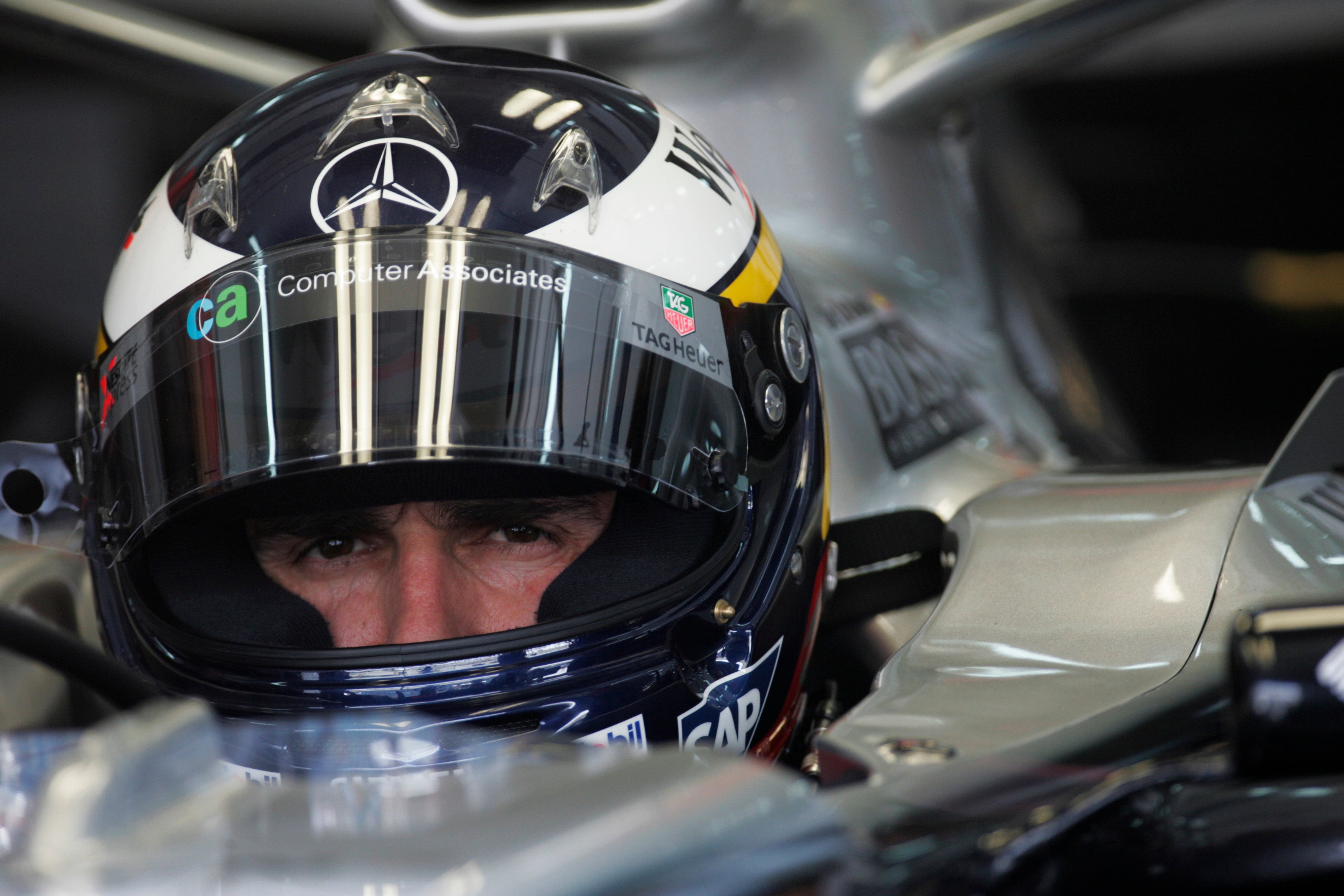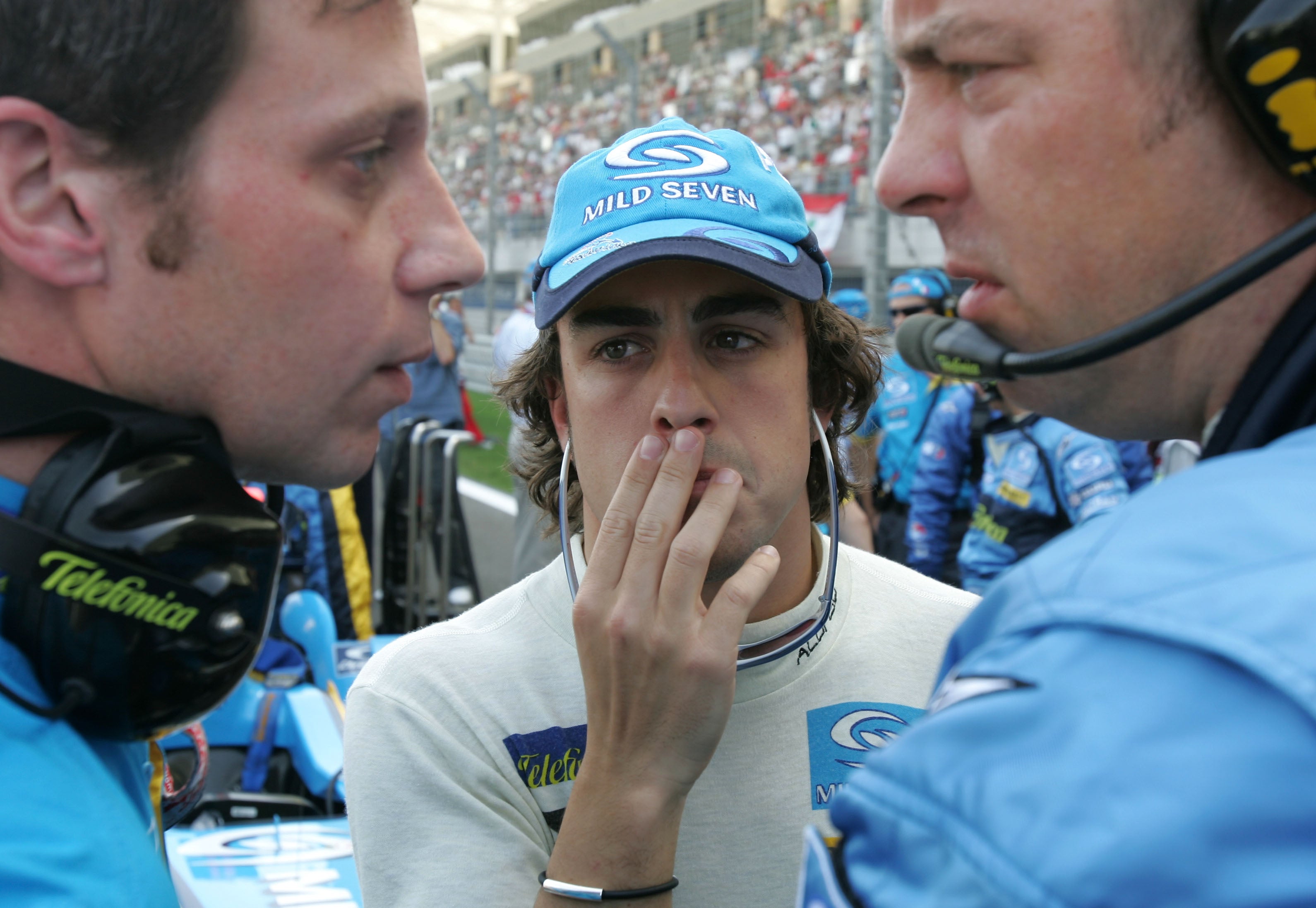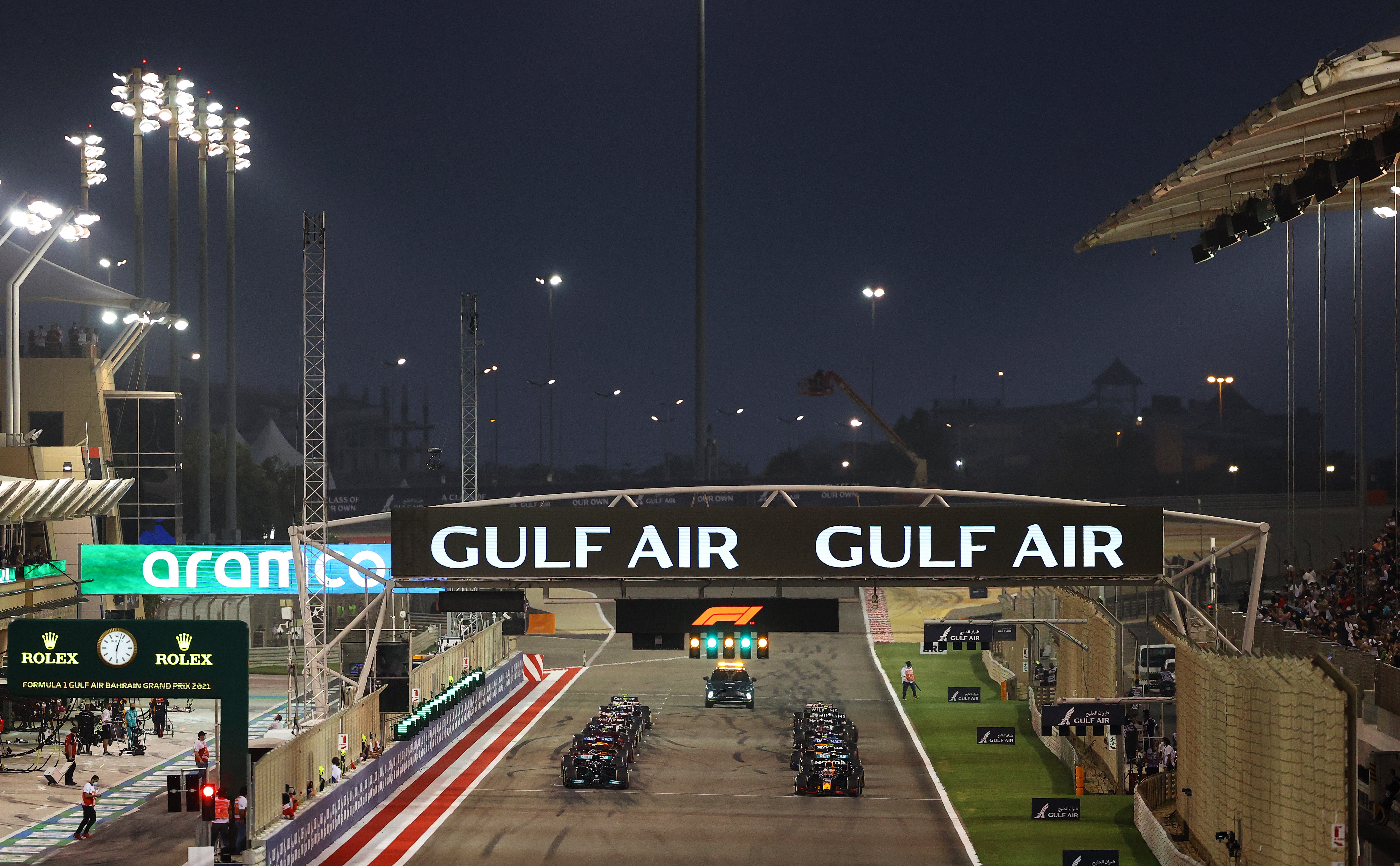
Pedro de la Rosa had waited over two years for a chance to start a Formula One grand prix. With 63 races in his rear-view mirror, the Spaniard had sat on the sidelines as a McLaren test driver, waiting patiently for an opportunity. So when the call came from McLaren supremo Ron Dennis to replace the injured Juan Pablo Montoya at the 2005 Bahrain Grand Prix, there was no time for nerves. And no time to bake in the Gulf oven.
“I was so excited about the race that I didn’t even sweat,” De la Rosa tells The Independent. “I didn’t drink at all – back then if you didn’t put in a drinks bottle, you saved weight on the car. So we didn’t even fit it.”
Performance over health? He won’t be the last in F1. Yet the second iteration of the Bahrain Grand Prix, 20 years ago, was the most extreme example in the sport’s 75-year history of drivers prioritising pace over physical condition. At 42.6C, beating 40C temperatures in Dallas and Detroit in the mid-1980s, it was the hottest F1 race ever.
Much to the surprise, in fact, of De la Rosa.
“I only just realised before this interview that it was the hottest race ever recorded,” he says.
“If I look back, I was just so into the race and so concentrated that I felt it was quite easy. I didn’t feel tired, even with the temperatures being over 40C. I was just so happy to drive that I’d have been able to accept another 10C!”
F1’s hottest-ever races
1. Bahrain, 2005: 42.6C
2. Dallas, 1984: 40C
3. Detroit, 1985: 40C
4. Brazil, 2007: 38.2C
5. Australia, 2008: 38.2C
What was notable, in dissecting the race coverage on ITV two decades ago, was the lack of complaints from drivers and pundits alike. From Martin Brundle’s pit walk – in jeans – to Fernando Alonso’s lights-to-flag victory from pole position (at the start of what would be his first title-winning season with Renault), the entire paddock simply moved with the times. This was the start of Bernie Ecclestone’s high-flying, lucrative move into the Middle East – and all the riches that came with it. There was no time to wallow in the sun.
“The key was the humidity levels – they were very low,” De la Rosa explains. “You have to protect yourself against dehydration. I had races in Singapore and Malaysia which were tougher than Bahrain just because of the humidity levels.
“Sometimes, I used to drink too much water and then the body auto-regulates. You had to be very careful.”
Given the sport’s gradual move towards night races, it is a temperature record that may well stand long into the future. Bahrain became a night race in 2014 to celebrate its 10th anniversary – and has remained that way ever since. Events in Saudi Arabia, Qatar, Singapore, Las Vegas and Abu Dhabi are also held under lights.


Yet the 2003 Qatar Grand Prix – with drivers vomiting and retiring due to heatstroke – brought into the spotlight the sport’s warm-weather regulations. For this year, a new driver cooling system has been introduced, which involves a combination of a box with cooling components and a fireproof shirt worn under the racing suit.
With temperatures in the low 30s over the next few days in Bahrain, the drivers will likely progress through the weekend unscathed.
“I felt very relieved after the race, it was a historical point in my career,” De la Rosa says about Bahrain 2005, where he ultimately finished fifth for McLaren. “I proved a point.”
De la Rosa, now an ambassador for Aston Martin, would go on to race eight times for McLaren in 2006 before stints with Sauber and HRT to close out his career in 2012.

As for this weekend, in which Bahrain hosts race four of a season which has started with three different winners – the McLaren pairing of Lando Norris and Oscar Piastri splitting the first two grands prix before Max Verstappen’s win in Japan last week – De la Rosa has a unique reason to keep a close eye on proceedings.
Late on in that scorching ’05 race, he set the fastest lap – a 1:31:447. To this day, it is a lap record at the Bahrain International Circuit which has not been beaten and continues to raise eyebrows when it receives a mention in pre-race coverage. With F1 removing the extra point for the fastest lap, too, he has reason to be optimistic that his record will be preserved beyond its 20th year.
“It’s the last thing I have in Formula One,” De la Rosa says, with a chuckle. “I was extremely disappointed when they introduced the extra point for the fastest lap, but it survived.
“Unless they resurface the track, as they did in China and Japan when lap records fell, it should still be safe. I hope no one beats it… let’s see if it survives another 20 years.”
The Bahrain Grand Prix takes place on Sunday at 4pm (BST) and will be broadcast on Sky Sports F1
Lewis Hamilton ‘excited’ as Ferrari upgrade looks to kick-start F1 season in Bahrain
FIA executive Robert Reid resigns over ‘breakdown in standards’
Carlos Sainz risks further FIA punishment with coarse reaction to Japan fine
F1 Bahrain GP LIVE: Practice updates, times and results
Lando Norris ready to be ‘more demanding’ of McLaren in title pursuit
Lewis Hamilton ‘excited’ as Ferrari upgrade looks to kick-start F1 season in Bahrain







